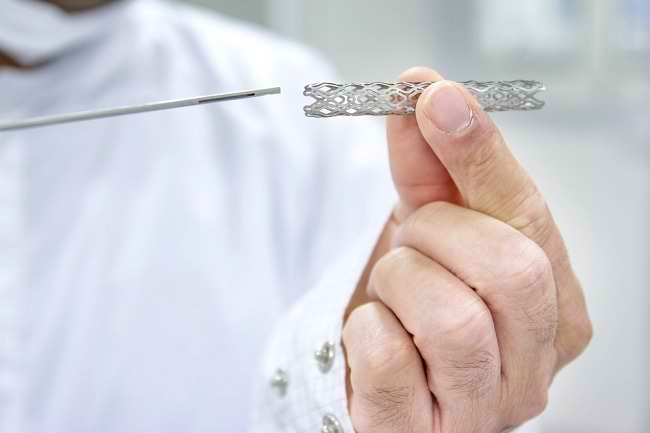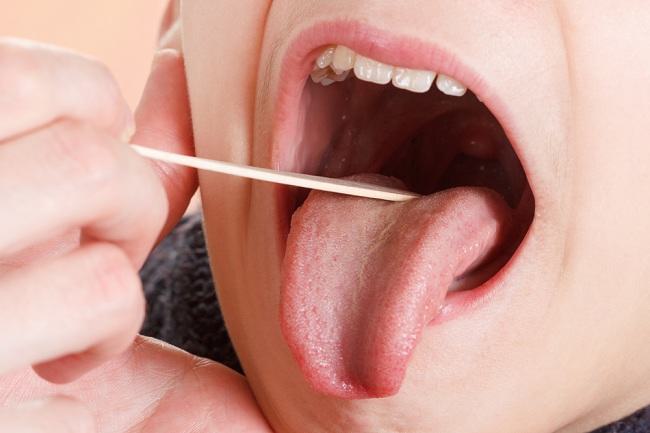Vardenafil is a drug to treat impotence or erectile dysfunction in men. This medicine can only be used with a doctor's prescription.
Vardenafil is available in tablet and tablet form orodispersible. This drug works by dilating the blood vessels in the penis, thereby increasing blood flow to the penis. This will help get an erection and maintain an erection during sex.

Please note, vardenafil cannot treat the cause of erectile dysfunction, cannot increase libido, and cannot prevent the transmission of sexually transmitted diseases (STDs).
Trademarks of vardenafil: Levitra
What is Vardenafil?
| group | Inhibitor phosphodiesterase (PDE) |
| Category | Prescription drugs |
| Benefit | Treat erectile dysfunction |
| Consumed by | Mature |
| Vardenafil for pregnant and lactating women | Category B: Studies in animal studies have not shown any risk to the fetus, but there are no controlled studies in pregnant women. Vardenafil should not be used by women and it is not known whether it is absorbed into breast milk or not. |
| Drug form | Tablets and tablets orodispersible |
Warnings Before Using Vardenafil:
- Do not use vardenafil if you have a history of allergy to this drug.
- Do not drink alcohol, drive a motor vehicle, or operate heavy machinery after using vardenafil, as this medication can cause dizziness and vision problems.
- Tell your doctor if you have phenylketonuria because some vardenafil products may contain aspartame.
- Tell your doctor if you have a history of heart problems, such as heart attack, heart failure, chest pain (angina), and heart rhythm disturbances, or a stroke in the past 6 months.
- Tell your doctor if you have stomach ulcers, blood clotting disorders, hypertension, hypotension, penile disorders, such as Peyronie's disease and priapism.
- Tell your doctor if you have a disease that can increase your risk of developing priapism, such as sickle cell anemia, leukemia, multiple myeloma, kidney disease, liver disease, and eye disorders, such as retinitis pigmentosa.
- Tell your doctor if you are taking any medications, vitamins, supplements, or herbal products, especially if you are taking alpha blockers, diuretics, heart medications, HIV medications, antifungal medications, and certain antibiotics, such as clarithromycin and erythromycin.
- This medicine is not used by women, let alone women who are pregnant or breastfeeding.
- See your doctor right away if you have an allergic reaction or overdose after taking vardenafil.
Vardenafil Dosage and Directions for Use
Common doses of vardenafil to treat erectile dysfunction are:
- Mature: the general dose is 10 mg, the range of doses that may be used is 5–20 mg. The drug should only be used once a day.
- seniors: the usual dose is 5 mg. The maximum dose is 20 mg. The drug should only be used once a day.
The dose prescribed by the doctor may differ from the general dose, depending on the patient's age, health condition, illness, response to medication, and other medications the patient is currently taking.
How to Take Vardenafil Correctly
Follow your doctor's instructions or read the instructions for use on the package before using vardenafil. Vardenafil can be taken before or after meals.
Vardenafil needs to be taken 25–60 minutes before sexual intercourse. Do not use this medicine more than once in 24 hours.
Wash and dry your hands before handling the tablets because the medicine is easily damaged. Vardenafil in tablet form can be swallowed with the help of a glass of water, while tablets orodispersible need to be placed on the tongue and wait for it to decompose before being swallowed without the help of water.
Store vardenafil in a closed place at room temperature and away from moisture, heat, and direct sunlight. Keep this medicine out of reach of children.
Vardenafil Interactions with Other Drugs and Ingredients
Vardenafil can cause interactions when used with other drugs. Drug interactions that can occur include:
- Increased risk of lowering blood pressure if used with alpha-blocking drugs, such as tamsulosin
- Increased risk of dangerously severe hypotension when used with nitrate drugs, such as nitroglycerin and isosorbide dinitrate, as well as drugs belonging to the class of nitrates. guanylate cyclase stimulator (SGCSs), such as riociquat
- Increased blood levels of vardenafil when used with SGCSs, CYP3A4 inhibitors, such as ketoconazole and clarithromycin, HIV protease inhibitors, such as ritonavir, or class III antiarrhythmic drugs, such as amiodarone
- Increased risk of QT prolongation if used with class IA antiarrhythmic drugs, such as quinidine and procainamide, or class III antiarrhythmic drugs such as amiodarone
In addition, taking grapefruit (grapefruit) together with vardenafil can increase blood levels of vardenafil.
Vardenafil Side Effects and Dangers
Vardenafil may cause the following side effects:
- Headache
- Stomach ache
- Back pain
- Stomach acid disease
- Flushing or reddened skin
- Runny or stuffy nose
- Flu-like symptoms, such as runny nose, cough, and sore throat
Consult a doctor if the above symptoms do not go away or get worse. See a doctor immediately if you experience a drug allergic reaction or serious side effects such as the following:
- Erection lasts for more than 4 hours
- Severe loss of vision that occurs suddenly
- Decreased ability to see color or difficulty seeing at night
- Sudden loss or decrease in hearing ability
- Irregular heartbeat
- Dizzy and feel like passing out









